Potrebujeme váš súhlas na využitie jednotlivých dát, aby sa vám okrem iného mohli ukazovať informácie týkajúce sa vašich záujmov. Súhlas udelíte kliknutím na tlačidlo „OK“.
ASTM D2512-95(2008)
Standard Test Method for Compatibility of Materials with Liquid Oxygen (Impact Sensitivity Threshold and Pass-Fail Techniques) (Withdrawn 2017)
Automaticky preložený názov:
Štandardná skúšobná metóda pre Kompatibilita materiálov s kvapalného kyslíka (Impact prahová citlivosť a predávací Fail techniky)
NORMA vydaná dňa 1.4.2008
Informácie o norme:
Označenie normy: ASTM D2512-95(2008)
Poznámka: NEPLATNÁ
Dátum vydania normy: 1.4.2008
Kód tovaru: NS-20593
Počet strán: 12
Približná hmotnosť: 36 g (0.08 libier)
Krajina: Americká technická norma
Kategória: Technické normy ASTM
Kategórie - podobné normy:
Materiály pro letectví a kosmické dopravní prostředky obecně
Anotácia textu normy ASTM D2512-95(2008) :
Keywords:
compatibility of materials, impact sensitivity threshold, liquid oxygen, pass-fail techniques, ABMA tester, Aerospace rocket propellants, Compatibility--aerospace materials, Flammability--aerospace materials, Ignition--aerospace materials, Impact sensitivity threshold technique, Impact testing--aerospace materials, Oxygen material compatibility, Pass-fail test, ICS Number Code 49.025.01 (Materials for aerospace construction in general)
Doplňujúce informácie
| Significance and Use | ||||
|
When this test method is used to measure the threshold impact sensitivity of a material, a relative sensitivity assessment is obtained which permits the ranking of materials. This test method may also be used for acceptance-testing materials for use in liquid oxygen systems. Twenty separate samples of the material submerged in liquid oxygen are subjected to 98 J (72 ft·lbf) or as specified. Impact energy delivered through a 12.7-mm (½-in.) diameter contact. More than one indication of sensitivity is cause for immediate rejection. A single explosion, flash, or other indication of sensitivity during the initial series of 20 tests requires that an additional 40 samples be tested without incident to ensure acceptability of the material. The threshold values are determined by this test method at ambient pressure. The sensitivity of materials to mechanical impact is known to increase with increasing pressure. Since most liquid oxygen systems operate at pressures above ambient condition, some consideration should be given to increased sensitivity and reactivity of materials at higher pressure when selecting materials for use in pressurized system. |
||||
| 1. Scope | ||||
|
1.1 This method , , covers the determination of compatibility and relative sensitivity of materials with liquid oxygen under impact energy using the Army Ballistic Missile Agency (ABMA)-type impact tester. Materials that are impact-sensitive with liquid oxygen are generally also sensitive to reaction by other forms of energy in the presence of oxygen. 1.2 This standard should be used to measure and describe the properties of materials, products, or assemblies in response to heat and flame under controlled laboratory conditions and should not be used to describe or appraise the fire hazard or fire risk of materials, products, or assemblies under actual fire conditions. However, results of this test may be used as elements of a fire risk assessment which takes into account all of the factors which are pertinent to an assessment of the fire hazard of a particular end use. 1.3 This standard does not purport to address all of the safety concerns, if any, associated with its use. It is the responsibility of the user of this standard to establish appropriate safety and health practices and determine the applicability of regulatory limitations prior to use. |
||||
| 2. Referenced Documents | ||||
|
Podobné normy:
Historická
1.11.2012
Historická
1.11.2012
Historická
1.4.2009
Historická
1.4.2012
Historická
1.4.2014
Historická
1.12.2011
Odporúčame:
EviZak - všetky zákony vrátane ich evidencie na jednom mieste
Poskytovanie aktuálnych informácií o legislatívnych predpisoch vyhlásených v Zbierke zákonov od roku 1945.
Aktualizácia 2x v mesiaci !
Chcete vedieť viac informácii ? Pozrite sa na túto stránku.


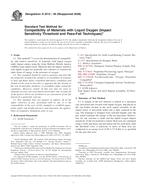
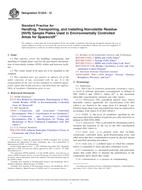 ASTM E1234-12
ASTM E1234-12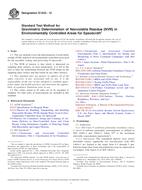 ASTM E1235-12
ASTM E1235-12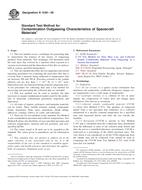 ASTM E1559-09
ASTM E1559-09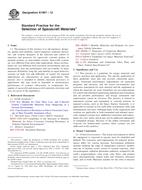 ASTM E1997-12
ASTM E1997-12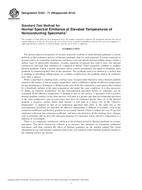 ASTM E423-71(2014)..
ASTM E423-71(2014)..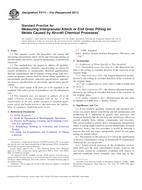 ASTM F2111-01a(2011)..
ASTM F2111-01a(2011)..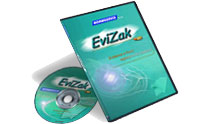
 Cookies
Cookies
